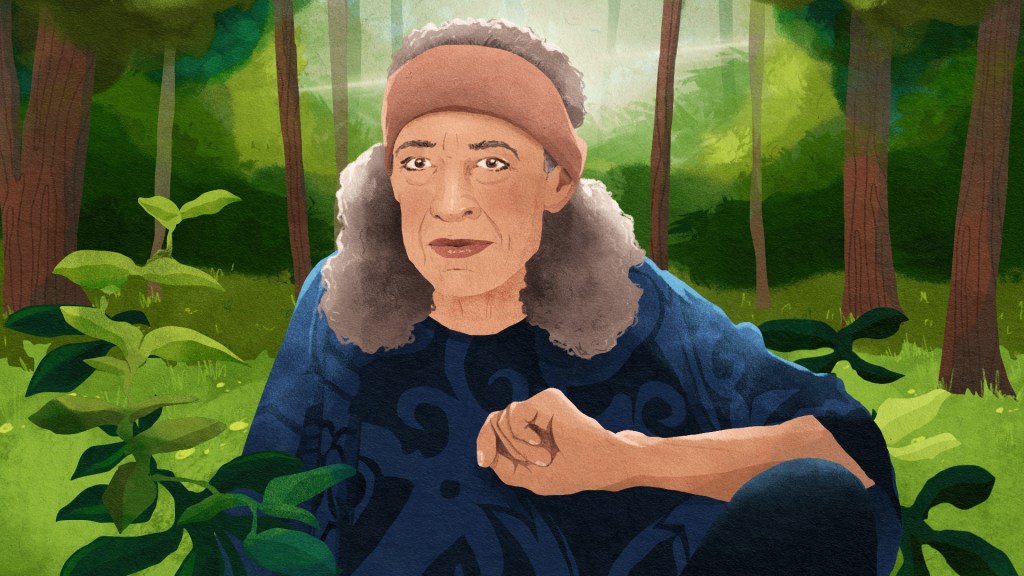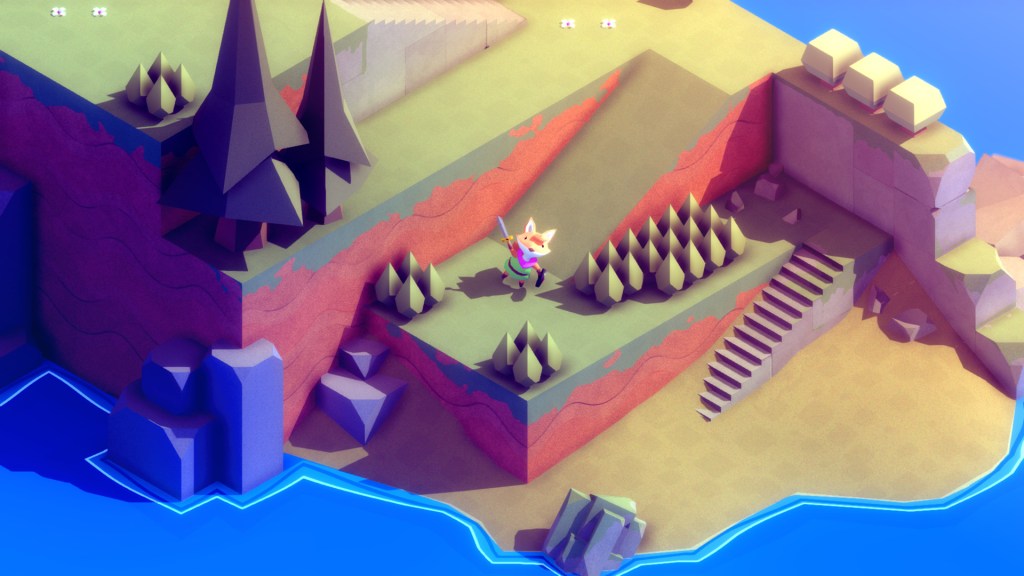December 15, 2009, is the worst yet most important day of my life. I lost my Grandma that day. She was everything to me. The person who I felt understood me the most — gone when I was 19. There’s a hole there that can never be filled. I’ve probably buried myself in more video games than I could count grieving over these last 15 years. But one game I played back in May of this year gave a voice to my grief. That game was Tales of Kenzera: Zau.

The brainchild of multi-talented actor and game dev, Abubakar Salim, Tales of Kenzera: Zau is a Metroidvania rich with African culture and symbols. Just as important, and the thing that sold me on the game: it was a vessel for Salim’s grief. He referred to it at this year’s Game Awards, but Abubakar Salim debuted this game last year at the Game Awards with the story of losing his father and how the grief affected him.
Videos by VICE
This driving force led him to create a game that not only celebrated his culture but acted as a release from the pain of losing a loved one. I had the chance to review it at release, and it is an amazing experience just from a gameplay perspective. But what I will remember forever is how it helped me a decade and a half later as I came to terms with the sadness, pain, and anger I felt after losing someone I cared so deeply for.
‘TALES OF KENZERA: ZAU’ — THE VOICE OF THE VOICELESS

The game opens with a title card that reads: “In loving memory of those who touched our lives. This game is a tribute to their enduring spirit.” There is no mistaking where this game is coming from. The first character you see is Zuberi, a young man who has just lost his father. Zuberi is soon gifted a book written by his father before his passing as a way to guide him through the process of grief. The book, however, is unfinished.
This is where the game actually starts as you control the main character of the book, Zau. Both Zau and Zuberi are voiced by Salim, and the game is better for it. After all, who better to give a voice to grief than someone actively experiencing it? Throughout the adventure, Zau presses forward believing he can somehow bring his father back.
The bosses in the game are designed to perfectly embody every feeling associated with grief. I will never forget my experience with the second boss, which may be the best depiction in any medium of what grief can do to a person. Every experience in this game was crafted specifically to personify the places people go mentally when someone passes away.
TALKING TO THE MOON

There is one part in particular that is both powerful and heartbreaking. It’s the section of the game I think about when I’m dealing with a rough day thinking of my Grandma. The conversation between Zau and Kalunga, the God of Death, hurt me. And I mean that in the most complimentary way possible.
Zau, confronting Kalunga, fires off on the God of Death. He accuses Kalunga of not caring for people the way he claims to, that he only seeks to lie in wait for his loved ones and take them away. Zau calls Kalunga an “inconvenience. The one God that everybody fears. The one that everybody hates.” I’ve felt that anger. I’ve screamed at everything, I’ve screamed at nothing. I felt every word Abubakar Salim painfully released. What I didn’t expect was to feel those things all over again while playing the game.
how kenzera helped me turn grief into peace

Tales of Kenzera: Zau gave me the one thing I haven’t had in all these years. The chance to properly go through grief. Those 12 hours in May of this year were the first time I got to truly reckon with missing such a significant part of me. Make no mistake, it still hurts. To quote Gandalf in Lord of the Rings, “That wound will never fully heal. He will carry it the rest of his life.”
But Tales of Kenzera: Zau gave me the opportunity and ability to carry that wound on my terms. So, I’m publishing this on December 15, 2024. 15 years to the day that I lost her — closing the circuit, so to speak. I’m writing this not in grief, but in gratitude. Gratitude to my Grandma for being my best friend, my mirror, and my conscience. And gratitude to Abubakar Salim for giving me that.
More
From VICE
-

Screenshot: Nintendo -

Screenshot: Shaun Cichacki -

-

